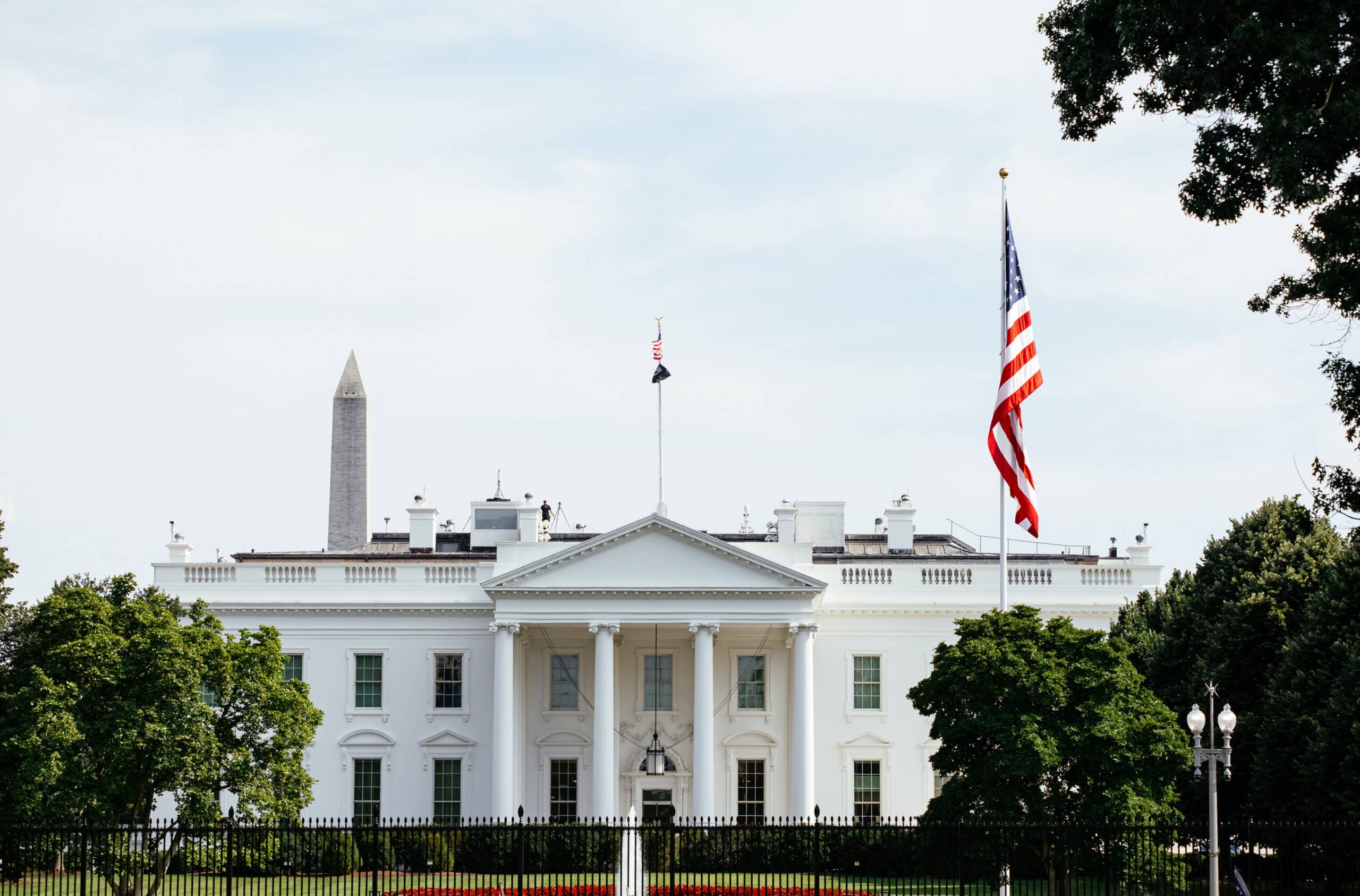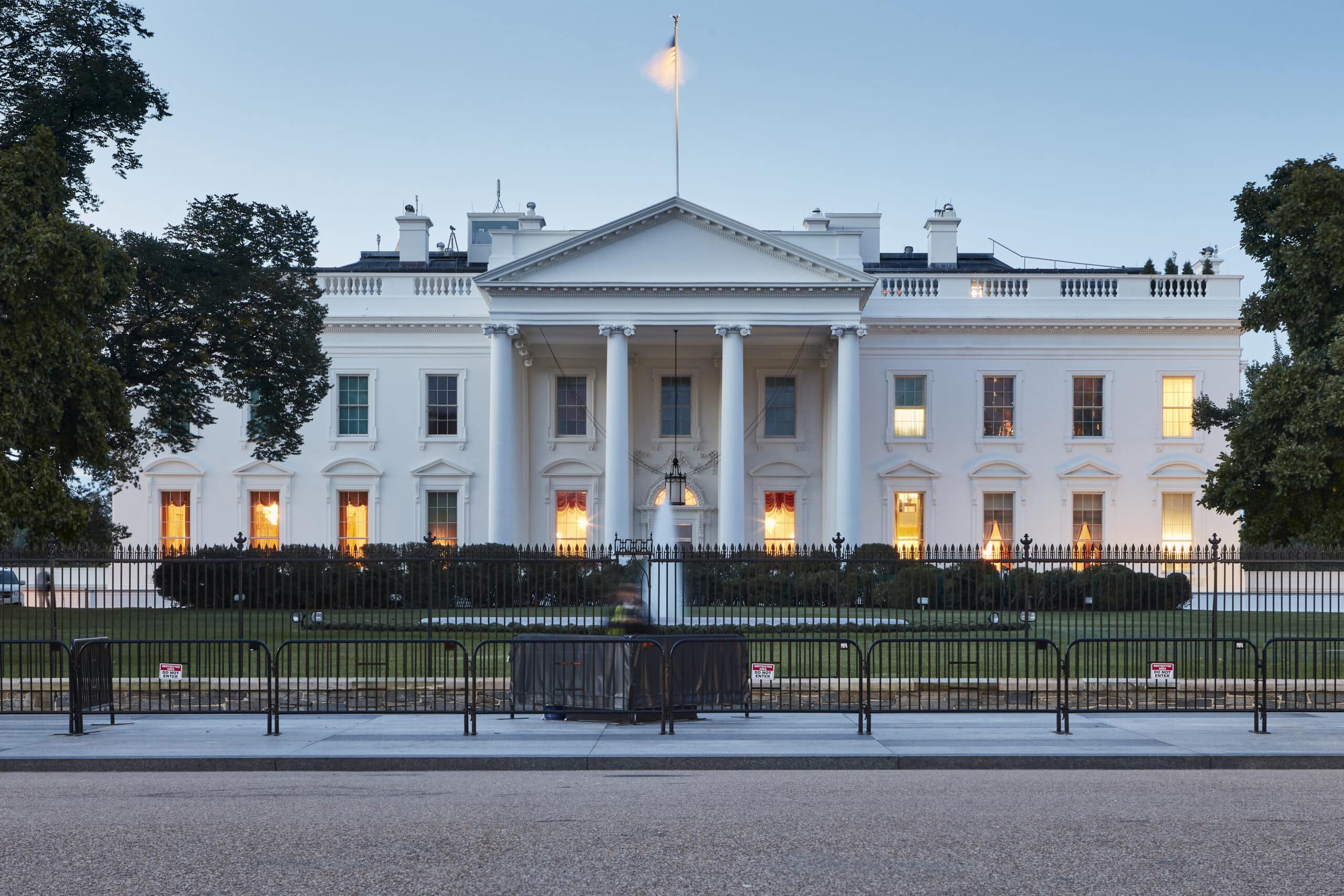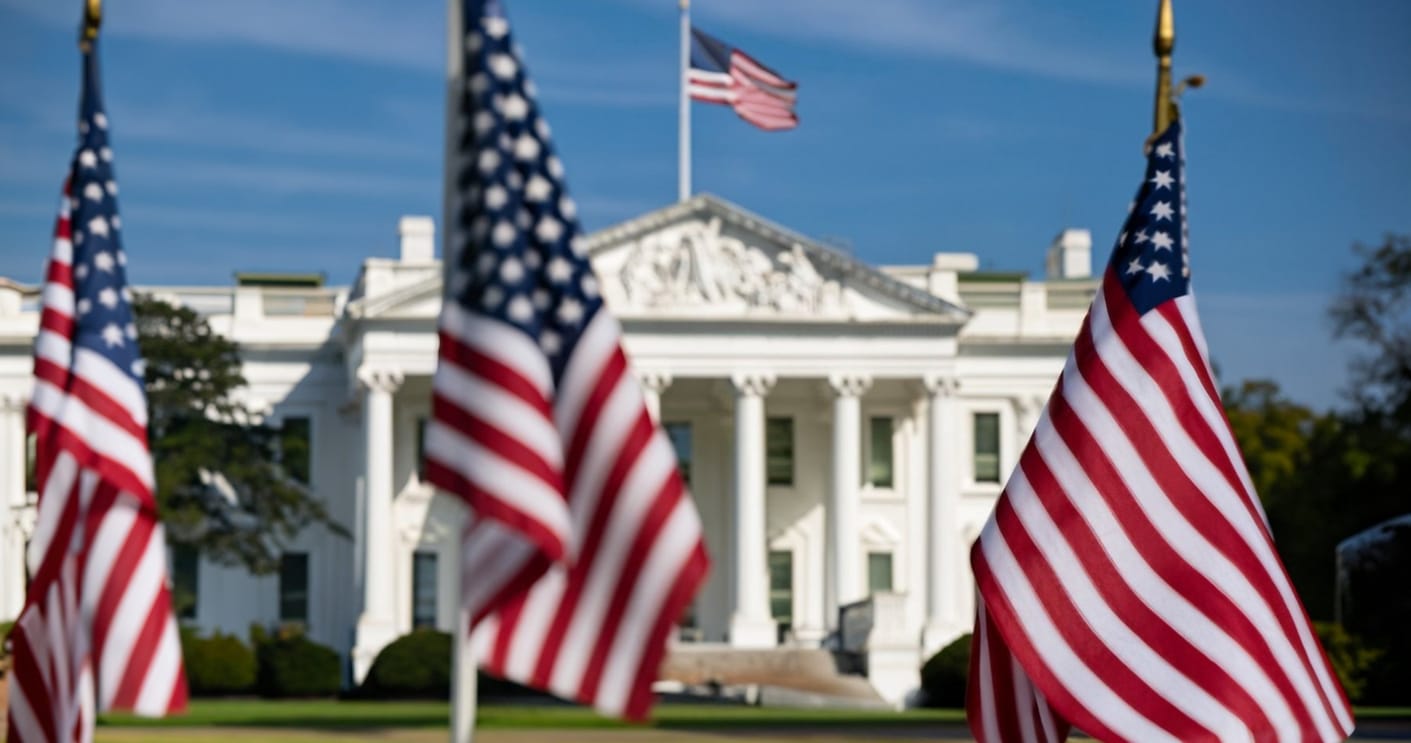Former Vice President Joe Biden and Vermont Senator Bernie Sanders are tied at 26% in the most recent Emerson national poll. Sanders’ support has increased 9 points from the Emerson February national poll, taken before he announced his campaign for President. Following the frontrunners in the poll are California Senator Kamala Harris at 12% and former Texas Representative Beto O’Rourke at 11%. O’Rourke’s support has increased 7 points from Emerson’s February national poll. Rounding out the top five is Massachusetts Senator Elizabeth Warren at 8%. The poll was conducted March 17-18 of Democratic Primary voters with a subset of n=487, +/- 4.4%.
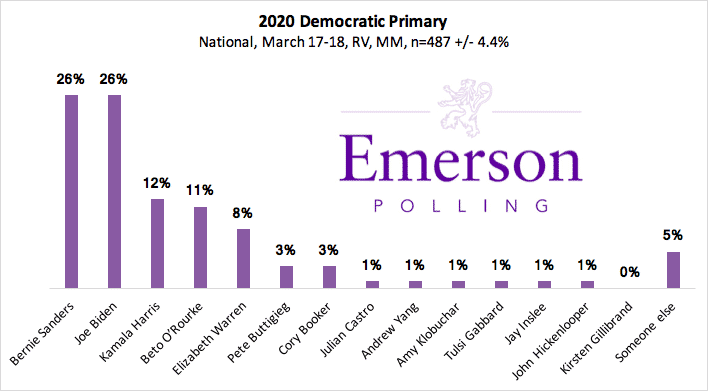
Sanders holds a strong advantage among 18-29 year olds, receiving 42% of their vote. Sanders also leads among 30-49 year olds with 30% support, while Biden leads among those 50-64 years old (39%) and 65 years or older (33%). Among those who supported Hillary Clinton in the 2016 Primaries, Joe Biden leads with 36%, followed by Harris and Sanders at 13%, O’Rourke at 12% and Warren at 8%. Of those who supported Sanders in the 2016 primary, 41% still support him, 18% now support Biden, 11% support Harris, 10% support Warren and 9% support O’Rourke.
President Trump’s approval rating has remained the same – 43% from our February poll. However, his disapproval rating has dropped marginally from our last poll, 51% to 50%.
General Election
In general election matchups between President Trump and the top potential Democratic challengers, all such matchups fell within the margin of error – except when Trump was matched up against Biden, where Biden beats Trump 55% to 45%. The national poll had a sample of n=1,153, +/-2.8%.
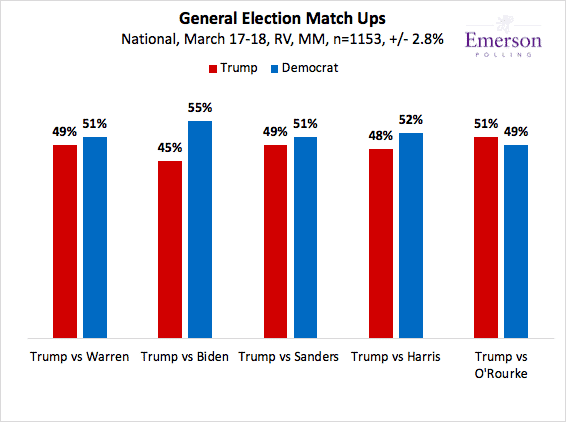
Howard Schultz once again appears to be weakening Democratic candidates hopes against President Trump. While Biden has a 10-point lead on Trump in head-to-head matchups, with 55% of the vote, he receives just 52% when Schultz is included as an option, shrinking Biden’s lead to 8 points. In a three-way matchup between O’Rourke, Trump, and Schultz, the latter pulls in 10% of the vote – leading to a Trump victory by plurality.
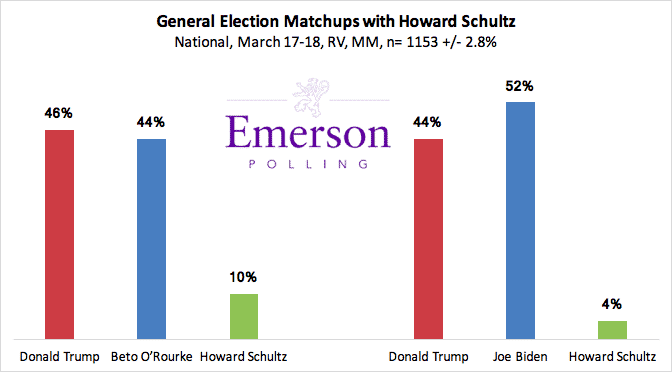
The Reagan Index
In the first and only Presidential Debate of the 1980 election, Ronald Reagan asked the audience four questions in his final statement: “Are you better off now than you were four years ago? Is it easier for you to go and buy things in the stores than it was four years ago? Is there more or less unemployment in the country than there was four years ago? Is America as respected throughout the world as it was?”
When asked these questions: 63% of respondents said there were better off today than they were four years ago, while 37% said they were not better off. Similarly, 61% of respondents said that it was easier for them to buy things from the store than it was 4 years ago,as compared to 39% of those who said it was not easier. When asked if there was more or less unemployment in the country, 70% said there was less unemployment while only 30% said there was more.
However, 56% of respondents said that America was not as respected as it once was, as compared to 44% of respondents who says it now is more respected. These numbers suggest that a majority of Americans are happy with the current economic state of the U.S., a factor that may aid Trump in his reelection campaign. On the other hand, the majority of Americans do not approve of Trump’s foreign policy, a potential weak spot for the President headed into the 2020 election.

Trusting The News
Asked which news source they trust the most, the plurality of voters (35%) indicated none, followed by 25% who picked cable news, and 15% chose newspapers as their most trusted source. 18-29 year olds are the only group where “none” does not hold a plurality. 38% of this group choose social media as their most trusted source.
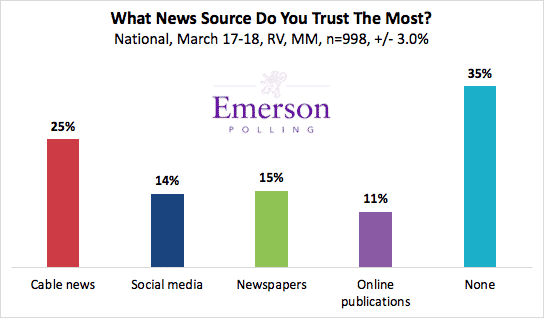
When voters were asked which television news source they trust the most, Fox News received a plurality of the vote, 37%, followed by CNN with 22% and MSNBC with 14%. CBS, NBC, and ABC all received 9%.
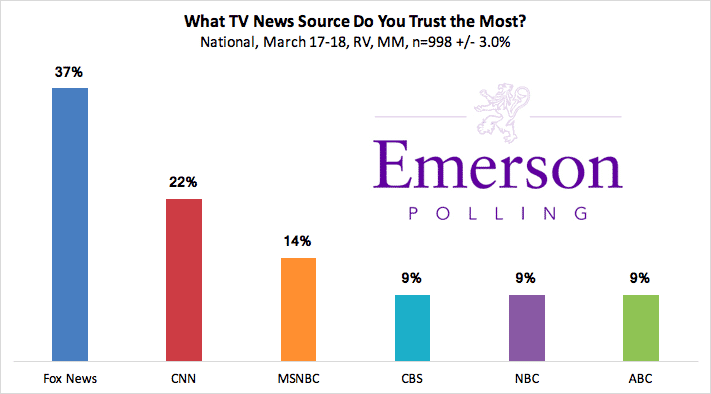
Follow us on Twitter @EmersonPolling



